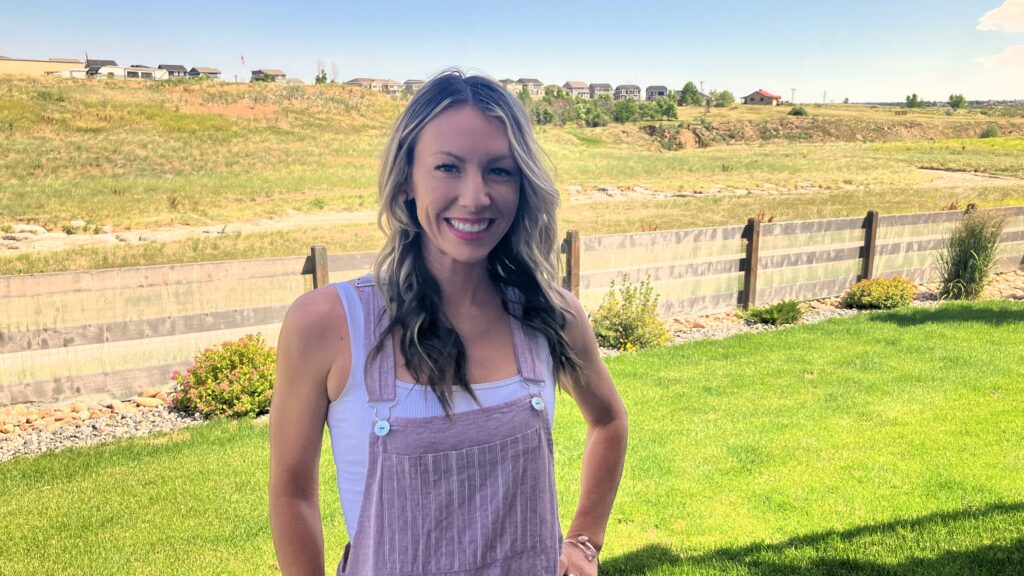I caught the homesteading bug along with half of the country and I’m not mad about it. While attending a homesteading conference, a family member asked how it was going. I shared the focus on mindsets and her response was, “Oh, so not really worth it then.” I paused as I considered her comment. Was she right? Had I just wasted my time? Was there value in cultivating your mindset?
I reflected on how a homestead mindset has changed how I source my food, the hobbies I pursue, my future goals and dreams, my career objectives, how I spend my time, the things I buy, and the pets I own. It might even influence how I choose to clean and decorate my house or the clothes I wear. My very identity has shifted by viewing life through a homesteading lens. No, it isn’t a waste of time to consider mindset.
I worked as a nurse before I had my fourth child, so health, wellness, and ongoing education has always been important to me. I stumbled upon homesteading because of food. In my research and efforts to keep myself and my family healthy, I began cooking from scratch and using only whole ingredients. I was having fun learning new skills of fermenting, yogurt, sourdough, bone broth, and growing my own food. I was feeling physically better. It was all so great…until it wasn’t.
Have you ever been so obsessed with making the right choices regarding food that it becomes all-consuming and debilitating? You’re not alone, cause hey girl, I’ve been there too. I’ve been racked with guilt for letting my kids eat school lunches instead of a perfectly balanced meal from home. I have stood paralyzed in the grocery store afraid to make a bad choice, making the errand take hours and becoming a painful venture every week. I have agonized over whether to prioritize organic or the budget. I let my self-worth be tied to the perceived nutrition status of my homemade meals. The shame of enjoying dessert has affected my mood and filled me with regret the next morning. A once loved family pastime of camping became an enormous ordeal. I stopped looking forward to those outings because of the effort and time it would take to prepare the food beforehand. And as each of my children was becoming more involved in sports and activities, my struggle to get dinner on the table was absolutely overwhelming. My “all natural” health mindset turned radical and was causing paralyzing stress.
I was still exploring scientific information on food and exercise all in the name of knowledge and trying to become healthier. There is so much conflicting evidence out there! Even before my homesteading journey I would fall prey to diet culture. We won’t even get into how my childhood predisposed me to be vulnerable to eating disorders, perfectionism, and obsessive-compulsive behaviors. But I think everyone is susceptible to the ever-changing promotion of certain foods and the demonization of others. I’m looking at you, spinach. Are you a superfood or trying to kill us all? IYKYK.
If I am honest with myself, I was investigating because I wanted to look better. I think we can all agree that both having a body and being a woman is a tough combo sometimes. I had already established an exercise routine and enjoyed being active. I believed that if I kept fine-tuning the nutrition, then I would see the results I desired. This led to more dos and don’ts and restrictions, which contributed to more shame, guilt, and fear of food.
I stumbled across an expert discussing orthorexia, and his description felt uncomfortably familiar. It was as if he was describing the very mentality I had meticulously cultivated in pursuit of ultimate health. I had mistakenly believed that my pursuit of natural living would change everything, including my body type. It was time to acknowledge that I had an unhealthy relationship with food stemming from body image issues.
Orthorexia describes a person who is fixated to an excessive degree on the quality of their food. This can include eliminating entire food groups and avoiding certain ingredients, additives, or pesticides. This is a sneaky one because it can start out as clean-eating and is entangled in truth and justification, not to mention some people really do need to avoid certain foods. But…when symptoms go beyond food preference and an interest in healthy eating, it becomes a problem. These symptoms can include:
- Strong anxiety about food choices, particularly around diet not meeting personal high standards of ‘purity.’
- Social isolation as a person withdraws from activities and people who do not align with their strict dietary regime.
- Feelings of guilt following ‘slip-ups.’
- Heightened self-esteem when eating foods that are perceived as healthy.
- Mood swings, anxiety, and depression.
I had to get curious about my thoughts and feelings. Was I working out because I hated my body? Or was I working out because I loved the mental health benefits and feeling stronger? Am I motivated by fitting the mold of a certain body type, or empowered to fend off osteoporosis, dementia, and promote longevity?. Do I view food as an enemy equipped to sabotage, or as a source of nourishment that will facilitate my goals? Am I counting calories today because I want to get a sense of portion size or because I am feeling a need to control and restrict because I’m not good enough? Am I not buying summer clothes because I feel I am undeserving or won’t look good enough in them yet?
And most importantly, am I punishing myself for not achieving the unachievable, or am I celebrating every good choice both mentally and physically? Taking the time to examine the reasons behind the choices I make everyday was essential in rerouting my cognitive self-talk.
What really contributed to a mindset shift was getting out of social isolation. If it is just you and the Instagram girlies all day long, things are bound to start looking bleak. Once I joined a pickleball group and started attending a high fitness class, I began having too much fun to be thinking about my appearance. Being surrounded by other women who are also facing the challenges of everyday life can have an enormous impact on your mindset.
I will probably always need to keep my mindset around food in check. What I love about the homestead mindset is it is one of resilience, not deprivation or perfection. You do not have to be incapacitated by constant thoughts regarding food. Your power lies in being kind to yourself. Don’t wait until you reach “ideal” before you start living the life you desire. Create a positive inner dialogue that will generate a healthy relationship with food.
I am still completely gratified by a dinner that was made entirely of something I grew, but I can now also appreciate the convenience of a rotisserie chicken, a store-bought salad dressing, or a ready-made sauce. I can enjoy a meal with friends even if it consists of ingredients I would typically avoid. Neither circumstance has any impact on my worth. Because my worth doesn’t change with the scale. And mindset has made all the difference.




